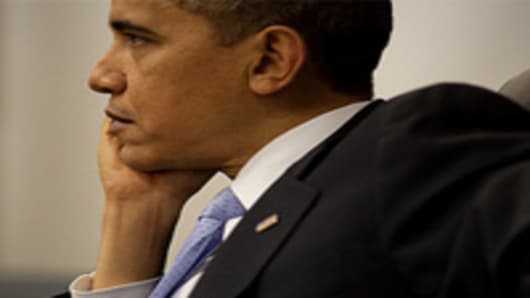"Why did I rob banks? That's where the money is!"
The famed bank robber, Willie Sutton, didn't actually deliver his most notable quote — it was the invention of an enterprising reporter. Nonetheless, it's a colorful and simple descriptive of motive.
Why does President Obama want to tax banks?
Because that's where the money is.
The Obama Administration is floating a trial balloon of plans to assess a fee or tax —targeted on big banks — with an aim of "recouping" supposed losses from the rescue of the financial sector.
The only problem with that logic is that big banks have not only paid back the federal government the TARP funds invested in them — they've paid back ahead of schedule and at a sizable profit for taxpayers.
In fact, Treasury Secretary Tim Geithner, in reporting to Congress last month the administration's TARP exit strategy, glowingly asserted, "We now expect a positive return from the government's investments in banks."
Secretary Geithner also reported that even the Money Market Fund Guarantee Program — a critical program that prevented the financial system from seizing ’ "incurred no losses, and generated $1.2 billion in fees."
So what exactly does President Obama plan to "recoup" from big banks? TARP losses from NON-banks like the auto companies and their finance arms.
Even as Speaker Pelosi and a host of Washington officials traveled to Detroit yesterday to fawn over a new line of green vehicles, the auto companies were making clear that much of the taxpayers' substantial investments in them would never be repaid.
But don't go looking for a "car tax" or an "auto union tax" to recoup those losses.
The TARP program rescued the financial system, with the aim that U.S. financial institutions would return to health and their role as financial intermediaries -- efficiently allocating capital to its most productive use. Now that banks are succeeding (we DID want them to succeed, didn't we?), they're making money.
And in the new bizzarro Washington-Wall Street nexus, success is considered a bad thing.
______________________
Tony Fratto is a CNBC on-air contributor and most recently served as Deputy Assistant to the President and Deputy Press Secretary for the Bush Administration.


